Doing business during a pandemic
Nancy Hiller interviews Paul Downs of Paul Downs Cabinetmakers, a business that makes top-of-the-line custom conference tables, about how they are moving forward in the current economy.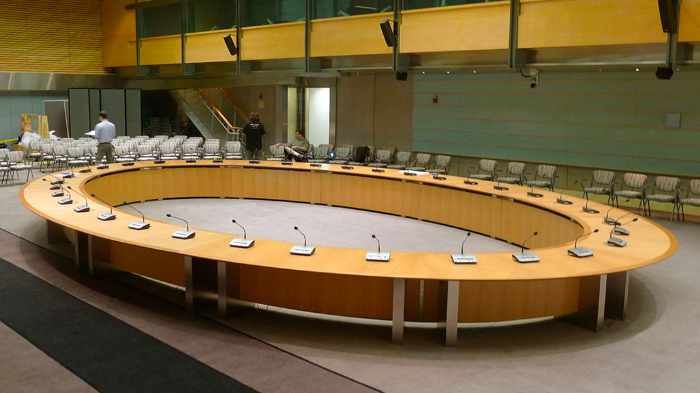
Over the past few weeks, as state lockdowns have lifted, people in businesses of all types have been reopening with new protocols in place to minimize the transmission of SARS-CoV-2, the virus that causes COVID-19. As a small-business owner myself, and one who’s married to a general contractor, I can tell you that the question of how to move forward with work amid a pandemic that experts suggest will be a major dimension of our reality for the foreseeable future has been a frequent topic of discussion in our household since mid-March. It’s clear that we need to come up with ways to continue working, while doing our best to keep our customers, families, and ourselves safe. So I’ve been keenly interested in how other professional furniture makers and those in related fields are adjusting.
Paul Downs runs Paul Downs Cabinetmakers, a business that makes top-of-the-line custom conference tables, in addition to other furniture for corporate, government, institutional, and residential clients. We met in 2017, when he invited me to visit his shop in Philadelphia while I was driving around the East Coast promoting English Arts & Crafts Furniture and Making Things Work. Housed in an old industrial building that overlooks the Schuylkill River, the place is eye-poppingly impressive, with around 25,000 square feet of woodworking equipment, bench space, and dedicated finishing areas and offices. The work they produce is even more impressive. It’s the kind of operation that brings millions of dollars into his local economy, supporting a staff of more than 20.
Paul is also a writer who contributed to The New York Times “You’re the Boss” blog for several years and followed that gig with Boss Life: Surviving My Own Small Business (Blue Rider Press, 2015), a gripping memoir about his life in the furniture business.
As someone who has kept his business going since 1986, Paul has lived through a few recessions, including the Great Recession that started in 2008. His candid, white-knuckle account of that experience makes up a good part of Boss Life and has won him sincere appreciation from many fellow business operators (as well as others who thanked their lucky stars that their livelihoods did not depend on running a furniture business). So I thought Paul would make a good interview subject on the question of how he’s moving forward amid the realities of COVID-19.
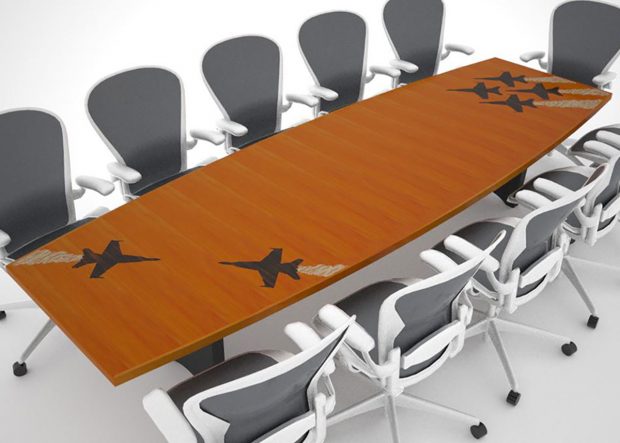
He broke his response into two parts, starting with work in the shop.
Pre-COVID, as he put it, there were 21 to 23 people working in the shop on a given day, 13 of them on the shop floor. It’s tempting to imagine it must be easy to keep plenty of distance between people in 25,000 square feet. But in real life, that’s not the way things work. “It’s impossible to do complex woodworking without talking to your fellow workers,” Paul points out. “As soon as you have employees, they have to talk to each other.”
To minimize the risk of transmitting the virus, everyone wears a mask. They try to stay at least 6 ft. apart. They keep the doors propped open to promote ventilation. They wash their hands often.
Although they’re holding meetings with clients, designers, and sales staff by videoconference, Paul says there’s no comparison with meetings in person. By now we’re all familiar with dropped internet connections, or unexpected interruptions by children and pets. But in a woodworking business with so many employees, you also have to factor in noise from work underway in another room. It’s hard to hear people clearly.
And the challenges of keeping people at least 6 ft. apart on the shop floor are effectively insurmountable. “There are about 100 15-second conversations on the shop floor” on any given day, says Paul. “They have to happen. And they don’t work if people are 8 ft. apart; you’re next to each other looking at something small and complicated,” whether that something is a drawing, a machine setup, or a question about the best way to treat a particular bit of grain.
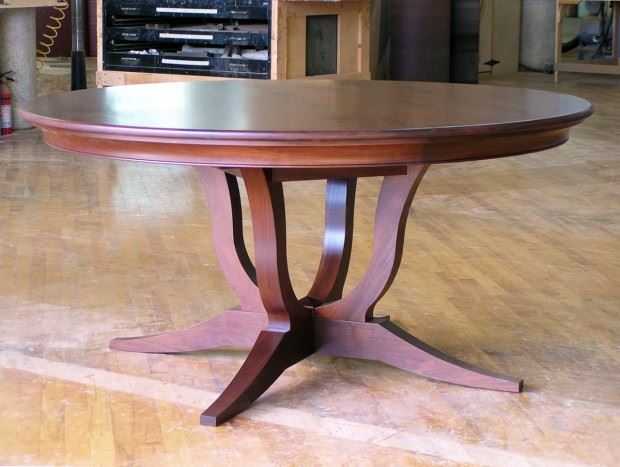
The second part of Paul’s response is to economic changes brought on by the pandemic. With tens of millions out of work in the United States, a ripple effect is beginning to make itself felt through the economy. “I, as the boss, have to make decisions about how we match our personnel to the amount of work required,” Paul says. “That’s tricky. We’ve had a big slowdown in the number of inquiries over the last eight weeks.” He has a sales team that can handle far more prospective clients than they’re getting. “Do you keep them on payroll and hope the load comes back up?” he asks. “If you do, you burn a lot of cash and make it harder to survive the lean period that may be coming at you. Those are the decisions you have to make, and those are tough ones.”
As a business that specializes in tables for conferences and boardrooms, their entire operation is finely tuned to serve a particular niche. Could they pivot to widen their market? He says that would be very difficult—far more so than for a smaller shop. In the short term, things are fine. The question is what comes later. “We have to adjust to the risk and keep the economy going,” he concludes.
Nancy Hiller is a professional cabinetmaker who has operated NR Hiller Design, Inc. since 1995. Her most recent books are English Arts & Crafts Furniture and Making Things Work, both available at Nancy’s website.
 |
|
 |
Surviving a recession |
 |

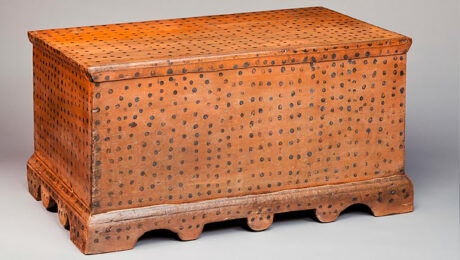

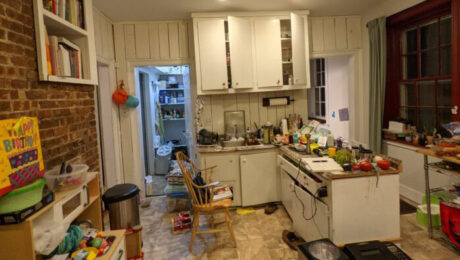
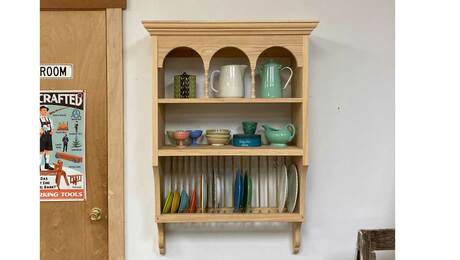


















Log in or create an account to post a comment.
Sign up Log in